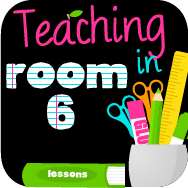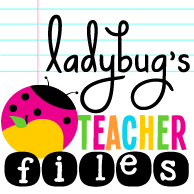If you've ever wanted to just take a peek into using Google forms, this post is for you! This is a great resource for the independent, let-me-play-around-with-it-type of learner. It is very user-friendly and detailed, walking you step-by-step through things like:
What is Google forms?
Creating a new form
Adding collaborators to the form
...and more!
Click on the icon to check it out.
Wednesday, October 23, 2013
Pets in the Classroom - FREE!

Wandering through the classrooms at JTSD, we stopped by Summer Holmes's third grade classroom and noticed the two new friends she had caged in the corner--RAT friends! She shared with us a website: petsintheclassroom.org, which gives grants to teachers for classroom pets!
If you've ever thought about having a classroom pet, check out the site. What are the benefits of a classroom pet?
*Responsibility - feeding and care
*Bonding - sensitivity and awareness
*Persuasive Writing - which pet should we get?
*Research - what would our class pet need to survive?
*Habitats - what kind of environment does our pet need?
Tuesday, October 22, 2013
It's Time for Another Nixerest!
Here are some great teaching tips from Nixa teachers:
 |
| LOVE all of our artistic teachers! |
 | ||||||||||||||||||||||
Word walls made with ribbon, word cards, and clothespins. This way students can get an unknown word and bring it back to their desk if they have any visual tracking issues.
|
Tuesday, October 15, 2013
Friday, October 11, 2013
Tips for Successful Parent-Teacher Conferences
Research has shown that parental involvement is the most important
factor in a student's success in school. For many parents, however, that
involvement is limited to attendance at parent-teacher conferences. We must make the most of the opportunity.
*Consider sending home a questionnaire with your conference sign-up form asking parents to share questions and concerns about their child or school policies.
*You may also want to include a list of major topics that have been covered and what the students are expected to know and be able to do.
*Collect work samples for each student as concrete evidence to share with the parents about their child's progress in meeting academic expectations.
*Make notes about each child's strengths and areas of growth so that you are prepared and are able to remain focused during the conference.
*Have students set one or two goals for themselves for the following quarter and share those during the conference.
A quick search will yield lots of ideas for parent-teacher conferences. This form was created by Zanah McCauley and posted on Teacher's Pay Teacher's for FREE! Click on the picture to grab your own copy.
*Sit with the parents at a table or desk in the same sized chairs. Keeping everyone at the same level is more welcoming and comfortable.
*Know the parents' names.
*Include the student in part of the conference, if possible.
*Start with something positive about the child and then work into areas that can be improved upon. Return to something positive at the end of the conference.
*Answer questions and address concerns that were returned on the questionnaire.
*LISTEN to the parent, but keep the conference focused on the student.
*Work with parents on a plan for helping their child at school and at home. Have specific suggestions ready in case a parent asks how they can help at home.
*Share the goals students have set for themselves.
*Thank them for taking time to come and meet with you.
*Act professionally. If the conference becomes unproductive, ask to schedule a continuation of the conference at another time.
Another FREE resource on TPT was posted by Lessons for Liam, which you can check out HERE.
Before the conference:
*Communicate with parents frequently throughout the year. Take time to mention positive things, even if they are small. Address any concerns expediently so that any concerns brought up at conferences aren't a surprise.*Consider sending home a questionnaire with your conference sign-up form asking parents to share questions and concerns about their child or school policies.
*You may also want to include a list of major topics that have been covered and what the students are expected to know and be able to do.
*Collect work samples for each student as concrete evidence to share with the parents about their child's progress in meeting academic expectations.
*Make notes about each child's strengths and areas of growth so that you are prepared and are able to remain focused during the conference.
*Have students set one or two goals for themselves for the following quarter and share those during the conference.
A quick search will yield lots of ideas for parent-teacher conferences. This form was created by Zanah McCauley and posted on Teacher's Pay Teacher's for FREE! Click on the picture to grab your own copy.
During the Conference:
*Sit with the parents at a table or desk in the same sized chairs. Keeping everyone at the same level is more welcoming and comfortable. *Know the parents' names.
*Include the student in part of the conference, if possible.
*Start with something positive about the child and then work into areas that can be improved upon. Return to something positive at the end of the conference.
*Answer questions and address concerns that were returned on the questionnaire.
*LISTEN to the parent, but keep the conference focused on the student.
*Work with parents on a plan for helping their child at school and at home. Have specific suggestions ready in case a parent asks how they can help at home.
*Share the goals students have set for themselves.
*Thank them for taking time to come and meet with you.
*Act professionally. If the conference becomes unproductive, ask to schedule a continuation of the conference at another time.
Another FREE resource on TPT was posted by Lessons for Liam, which you can check out HERE.
After the conference:
*Follow up with parents about any questions left unanswered, to check on progress goal progress, and to thank them again for their participation.What Do Parents Really Want to Know About Their Child?
- Welcome me into your classroom. This is my child’s home away from home. I want to feel our partnership when I walk through your classroom door.
- I am trusting you with one of my most precious belongings. Please find the good in my child and cherish him/her.
- I am afraid you are just going to tell me the worst about my child — please surprise me. Find something great about my child to share with me too.
- I am trying hard to be the best parent I can be. Please give me encouragement and ways I can help my child, not a list of things my child needs and does.
- I want to know that you know my child. Please don't talk in cliches or make generic comments like, "He's great," or "He's a boy".
- I want communication. When there is a problem, please contact me before it becomes a major issue.
- I want you to be as thorough as possible in your explanations. Please don't overwhelm me with educational jargon.
Blog Stalking
Pinterest, which has consumed far more of my time than I'd like to admit, has led to another addiction...BLOG STALKING!
For years, we've shared ideas with teachers from our grade level, building, or district. However, technology has allowed us to go global! I'm sure that as you're pinning, you start to pick up on names you see over and over of that one teacher who obviously doesn't sleep and you love everything he or she creates. Often, clicking on a pin will take you to that teacher's blog and you can follow them...even signing up to get an email alert every time a new post has been added. This makes you a blog stalker. :-) Don't worry...it's a good thing!
When we were out at buildings this week, Josh Bennett from JTSD was sharing some of his favorite blogs when I was hit with an AHA! moment. I needed to add some of our favorite blogs to a blogging post so that we can ALL share our favorites with each other. It's collaboration at it's finest, ladies and gentlemen! PLEASE respond to this post sharing the blogs you love to stalk, too!
I'll start with the ones that Josh shared, since it inspired the idea...


And, since we're in the collaborative spirit, I'll add some of my own:

Happy blog-stalking! ;-)
For years, we've shared ideas with teachers from our grade level, building, or district. However, technology has allowed us to go global! I'm sure that as you're pinning, you start to pick up on names you see over and over of that one teacher who obviously doesn't sleep and you love everything he or she creates. Often, clicking on a pin will take you to that teacher's blog and you can follow them...even signing up to get an email alert every time a new post has been added. This makes you a blog stalker. :-) Don't worry...it's a good thing!
When we were out at buildings this week, Josh Bennett from JTSD was sharing some of his favorite blogs when I was hit with an AHA! moment. I needed to add some of our favorite blogs to a blogging post so that we can ALL share our favorites with each other. It's collaboration at it's finest, ladies and gentlemen! PLEASE respond to this post sharing the blogs you love to stalk, too!
I'll start with the ones that Josh shared, since it inspired the idea...


And, since we're in the collaborative spirit, I'll add some of my own:

Happy blog-stalking! ;-)
Friday, October 4, 2013
Don't Let the New Name Confuse You
First, Missouri called them the Common Core State Standards, CCSS.
Then, Missouri started calling them the Core Academic Standards, CAS.
Now, Missouri is calling them Missouri Learning Standards, MLS.
So, CCSS = CAS = MLS
Below is a new website DESE has created for the Missouri Learning Standards:
Tuesday, October 1, 2013
Math Common Core Vocabulary Cards for Grades K-2
Missouri Mathematics Core Academic Standards
The Missouri Mathematics Core Academic Standards Vocabulary Cards for grades K-2 are aligned to
explicit mathematical terms included in the Mathematics Core Academic Standards (CAS). The cards are
intended to add clarity to the Mathematics CAS and to help K-2 students including ELL, gifted
and talented, special education, and regular education students with relevant mathematics vocabulary.
The words and illustrations on the cut-apart cards will aid the teacher in providing student friendly definitions
relevant to specific CAS that are referenced on each card.
©2012 Missouri Department of Elementary and Secondary Education
Kindergarten
1st grade
2nd grade
Common Core 8 Standards For Mathematical Practice
The Standards for Mathematical Practice describe varieties of expertise
that mathematics educators at all levels should seek to develop in their
students. These practices rest on important “processes and
proficiencies” with longstanding importance in mathematics education.
The first of these are the NCTM process standards of problem solving,
reasoning and proof, communication, representation, and connections. The
second are the strands of mathematical proficiency specified in the
National Research Council’s report Adding It Up: adaptive
reasoning, strategic competence, conceptual understanding (comprehension
of mathematical concepts, operations and relations), procedural fluency
(skill in carrying out procedures flexibly, accurately, efficiently and
appropriately), and productive disposition (habitual inclination to see
mathematics as sensible, useful, and worthwhile, coupled with a belief
in diligence and one’s own efficacy).
www.resa.net has posted this student-friendly mathematics practice standards placemat on their website. Click on the poster to download your own copy.
The Jordan School District in West Jordan, Utah, has released mathematical practice posters by grade level like the one below. Click on your grade level to download the posters for your own classroom!
Fall & Halloween Ideas
The Teaching Channel has created a Pinterest Board with links to fun Halloween activities such as pumpkins that glow, ooze, or explode, Halloween books and apps, and more! Click on the candy corn to see their list.
Don't forget to SHARE your favorite Fall and Halloween ideas with us!
Subscribe to:
Comments (Atom)




























